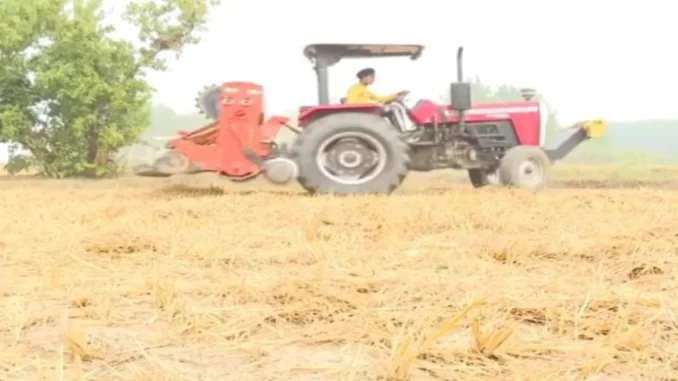
To address the persistent issue of stubble burning, farmers in Hoshiarpur are increasingly adopting the Super Seeder machine. This innovative technology is proving to be a game-changer in sustainable agriculture.
The Problem of Stubble Burning
Stubble burning has long been a major environmental concern in Punjab, contributing to severe air pollution and health hazards. Traditionally, farmers burn the leftover paddy straw to clear fields quickly for the next crop, leading to a spike in air pollution levels.
Introduction of the Super Seeder
The Super Seeder machine offers a sustainable alternative by cutting and mixing the stubble into the soil while simultaneously sowing the next crop. This method not only prevents air pollution but also enhances soil fertility by incorporating organic matter back into the ground.
Government Support and Subsidies
To encourage the adoption of this technology, the Punjab government provides substantial subsidies. Individual farmers can avail a 50% subsidy, while cooperative societies and farmer groups receive up to 80%1. This financial support is crucial in making the Super Seeder accessible to a larger number of farmers.
Farmer Experiences and Benefits
Farmers who have switched to the Super Seeder report multiple benefits. “Using the Super Seeder has significantly reduced our dependency on burning stubble. It has improved soil health and reduced our input costs,” says Gurpreet Singh, a farmer from Hoshiarpur.
With increasing awareness and government support, the adoption of the Super Seeder is expected to rise, potentially transforming agricultural practices in Punjab.





Leave a Reply